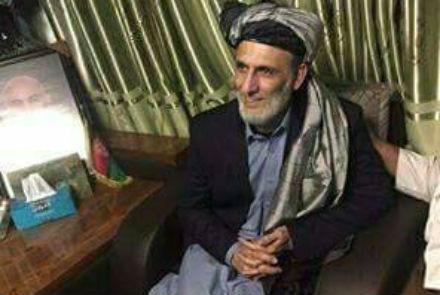The Human Rights Watch (HRW) has raised concerns over the release of Zardad Faryadi, a former commander of reconcoiled Hizb-e-Islami, saying the release puts the lives of witnesses, who testified against him in 2005, at great risk.
HRW researcher Patricia Grossman has called on Afghanistan's President Ashraf Ghani to protect these witnesses.
In 2005, during Faryadi’s trial in the U.K, 16 witnesses testified against him. Grossman was one of them.
"I stood in the witness box in a courtroom at the Old Bailey, London's historic Central Criminal Court, to testify in the case of Faryadi Sarwar Zardad, an archetypal Afghan warlord who in the 1990s abducted and tortured travelers on a stretch of road he controlled east of Kabul," says Grossman.
Faryadi was convicted and sentenced to 20 years' imprisonment on the basis of their testimony, but UK authorities last week abruptly announced the parole of Zardad, 11 years into his sentence, and deported him to Afghanistan.
Grossman blasted the British government for not warning the witnesses until a few days before they deported Faryadi.
“Incredibly, and unforgivably, British officials didn't even bother to warn the witnesses until a few days before that they were returning this still-dangerous criminal into their midst. None of the witnesses have any protection from this man, who retains his supporters and has shown a willingness to commit torture and other crimes,” she said.
“Many now fear that Zardad (Faryadi) may seek revenge against those who put him away in a British prison cell, and no one in Kabul seems willing to try to stop him. But they could. While the UK Home Office has shamefully washed its hands of the case, the Afghan government can and should protect those witnesses most at risk,” she said.
Meanwhile, legal experts in Afghanistan are also unhappy about the Afghan government’s hasty decision to release Faryadi.
“In theory and on the basis of article 75 of the constitution, the government is responsible for the individual safety of every Afghan citizen. But in practice, the overall security situation in Afghanistan is not much better, therefore, necessary measures need to be taken by government for security of these individuals,” said legal expert Abdul Subhan Misbah.
“Individuals such as Zardad (Faryadi) are causing more problems in society, this also endangers the lives of those who testified against him,” said university lecturer Hikmatullah Shah.
Grossman meanwhile suggested that government impose parole restrictions on Faryadi, and scrupulously monitor his compliance in order to protect those who testified against him.
“President Ashraf Ghani recently vowed to ‘protect every citizen’ in accordance with Afghanistan's human rights obligations, even if it means investigating prominent political figures. To show that he's serious, he should start with Zardad,” she said.


